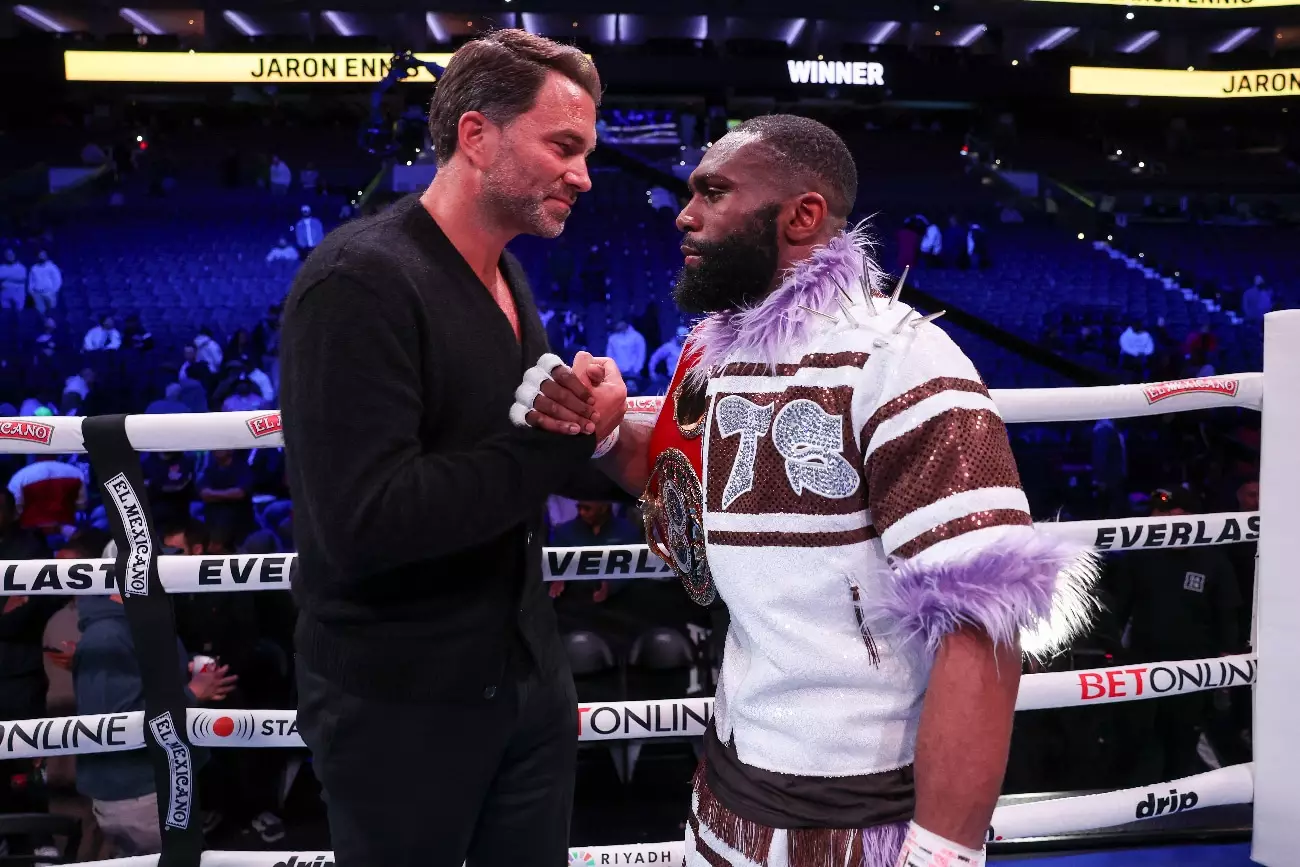Recent developments in boxing have illuminated the ever-complex dynamics between fighters, promoters, and match-making decisions. Oscar De La Hoya’s social media post highlighted a significant change of heart on the part of Eddie Hearn regarding the anticipated bout between Jaron ‘Boots’ Ennis and Vergil Ortiz Jr. Both fighters hold promising records—Ortiz boasting an undefeated resume at 22-0 with a staggering 21 knockouts, while Ennis arrives at the ring with a flawless 33-0, including 29 KOs. However, the shifting sands of promoter discretion reveal the precarious nature of high-stakes matchmaking.
De La Hoya’s statements shed light on the competitive landscape where fighters and promoters navigate through practical insights to secure both safety for their boxers and financial guarantees for their ventures. The reconsideration of a match against Ortiz reveals a defensive mentality from Hearn, likely influenced by Ennis’s recent struggle against Karen Chukhadzhian. The confrontation on November 9 presented Ennis in a less-than-ideal light, prompting speculation about his technical skill set.
Critical examination of Boots Ennis’s performance against Chukhadzhian showcases a deeper issue within the fighter’s arsenal. Oscar De La Hoya described Ennis’s outing as reminiscent of an amateur, suggesting a stark contrast between his expectations and the reality reflected in the ring. Chukhadzhian, who entered the fight with a 24-3 record, seemed to overshadow Ennis’s performance, landing effective potshots and showcasing a superior tactical approach. This brow-raising encounter raises pertinent questions about the long-term viability of Ennis against elite competition like Ortiz, whose punching power is widely acknowledged.
The implications of Ennis’s recent bout may thus dictate Hearn’s narrative moving forward. By opting against facilitating a fight with Ortiz, Hearn likely assesses his fighter’s ability not just to compete, but to thrive in a demanding match-up. Given Ennis’s defensive deficiencies and challenges against a competitive opponent, it raises legitimate concerns about his capability to withstand the onslaught from a seasoned puncher like Ortiz, who possesses not only power but also a refined approach to ring strategy.
Hearn’s pivot from an initial agreement to engage in a 5 vs. 5 card featuring Ennis and Ortiz exemplifies a tactical reassessment likely driven by business acumen as much as sporting integrity. With Ennis positioned as a potential kingpin in the junior middleweight category, Hearn may prioritize keeping him dominantly positioned in lighter weight classes. It is a strategy grounded in short-term safety over risking his flagship fighter against a rival who can deliver significant damage.
De La Hoya’s candid admonition towards Hearn highlights not only an industry rivalry but also raises broader themes around boxing promotion ethics. The relationship between promoter and fighter is often symbiotic yet fraught; while promoters make decisions designed to protect talents, they also walk the tightrope of profit-driven matchups. Ultimately, this latest chapter in boxing’s intricacies reflects the perpetual balancing act between ambition, risk, and potential stardom, as seen through Ennis’s hesitating path toward true legitimacy in the ring.


Leave a Reply